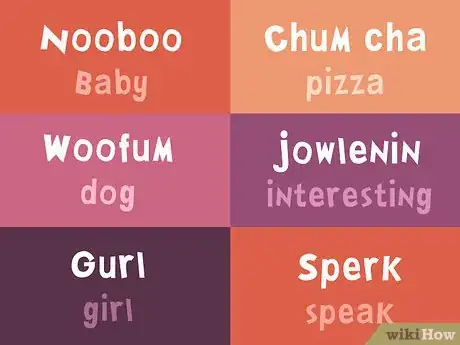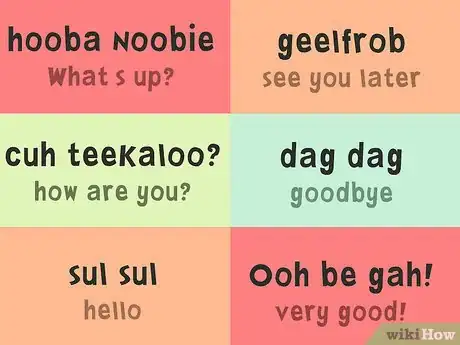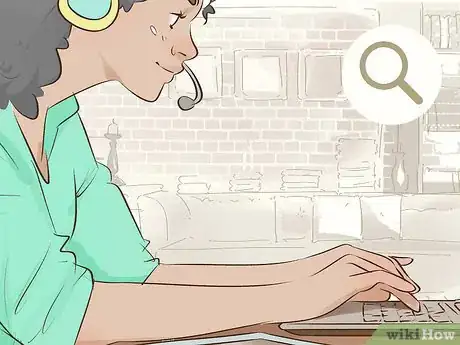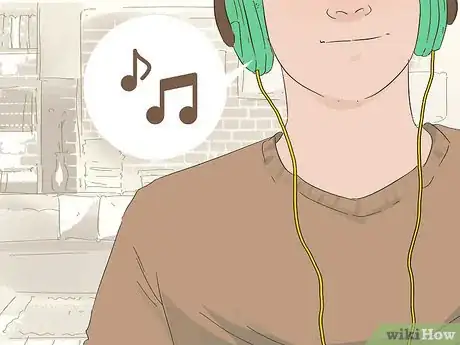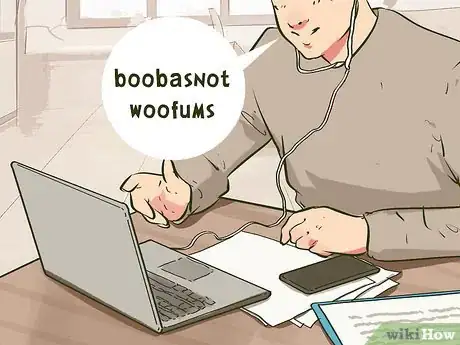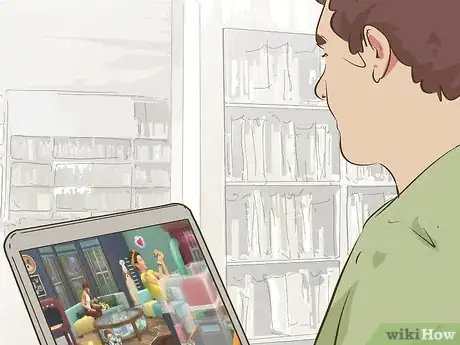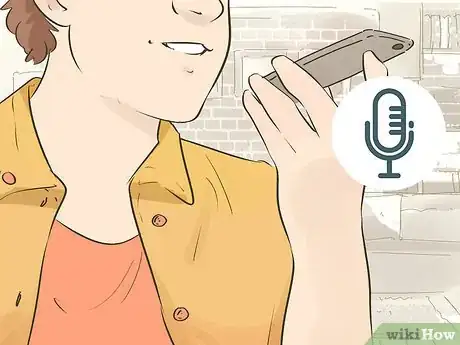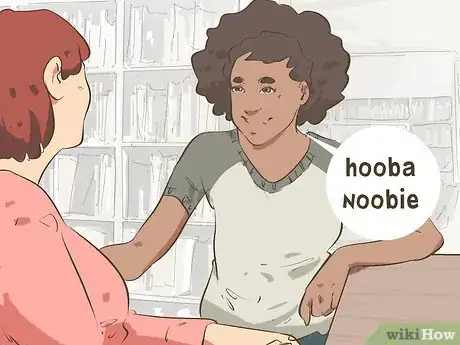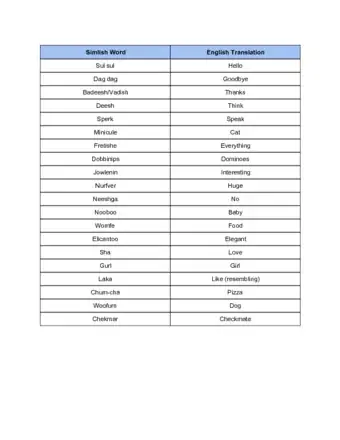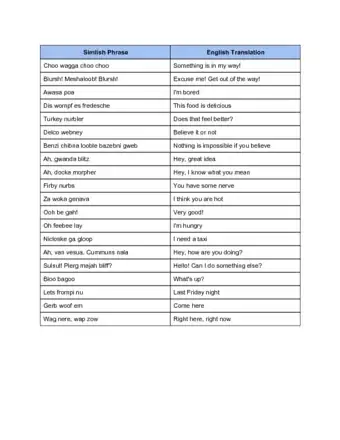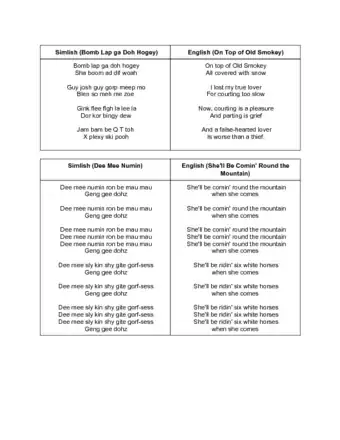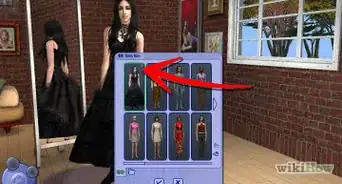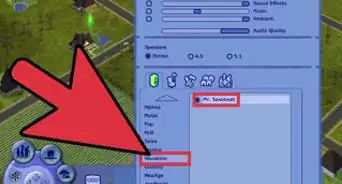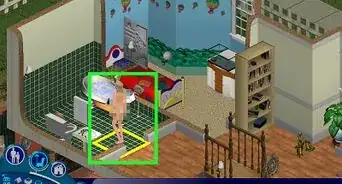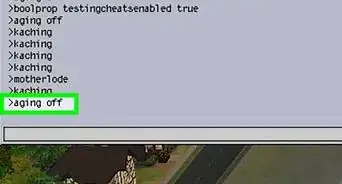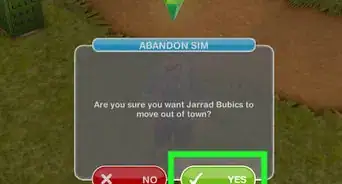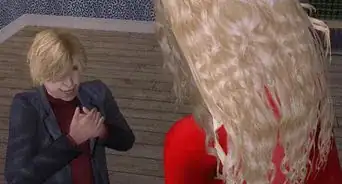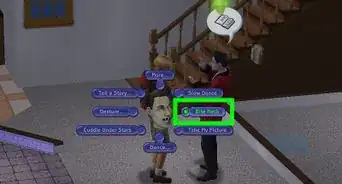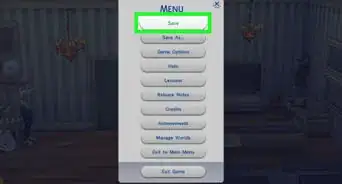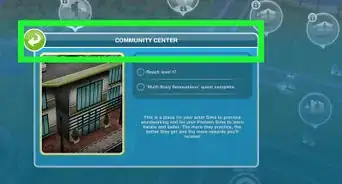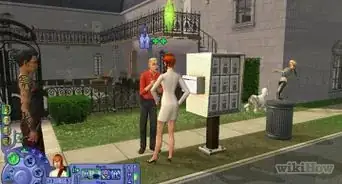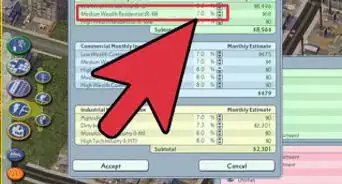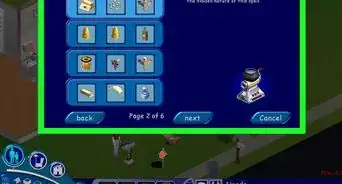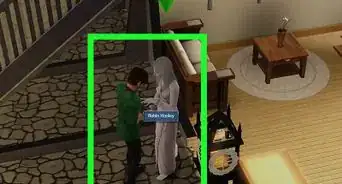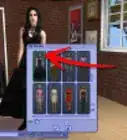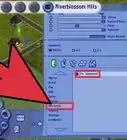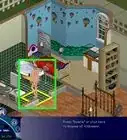This article was co-authored by wikiHow Staff. Our trained team of editors and researchers validate articles for accuracy and comprehensiveness. wikiHow's Content Management Team carefully monitors the work from our editorial staff to ensure that each article is backed by trusted research and meets our high quality standards.
There are 13 references cited in this article, which can be found at the bottom of the page.
This article has been viewed 1,102,048 times.
Learn more...
Simlish is a fictional language spoken by the characters in the popular game series The Sims. It consists mostly of gibberish sounds, as Will Wright, the series’ creator, wanted the games to have universal appeal, without the need to translate them into different languages. If you’re a die hard Sims fan, teaching yourself to speak Simlish can be a fun and quirky project. A good place to start is by paying close attention to the way the characters express themselves in the game and learning the meaning of words and phrases that are repeated frequently throughout the series.
Steps
Studying Simlish
-
1Learn the meaning of common words and phrases. Even though the Simlish language is mostly just nonsensical sounds improvised by voice actors, there are a few constants that can be overheard in each of the games. Jot down words and phrases you hear repeated frequently, along with their probable meanings. In no time, you’ll have a list of words that will form the core of your Simlish vocabulary.[1]
- “Nooboo,” for instance, means “baby,” while “chum cha” translates to “pizza.” These and other words are used consistently by every character type, including men, women, babies, and even aliens.[2]
Tip: Unofficial Simlish dictionaries compiled by Sims fans can make useful study aids when you’re learning the fundamentals of the language. You can find many such resources on Internet forums and fan pages.[3]
-
2Familiarize yourself with the basic greetings. Sims characters almost always use the same phrases when addressing each other in everyday situations. In each game in the series, “sul sul” means “hello” and “dag dag” means “goodbye.” If you have a keen ear, you’ll hear other phrases pop up regularly, too, such as “cuh teekaloo?”, which roughly translates to “how are you/how’s it going?”[4]
- You could also throw out a “hooba noobie” (“What’s up?”) or “geelfrob” (“See you later”) if you’re looking for a more casual way of greeting someone.[5]
- For a simple conversational exercise, try starting an imaginary dialogue with, “Sul sul, cuh teekaloo?” (“Hey, how’s it going?”), then adding your own touches off the top of your head.
Advertisement -
3Research some of the languages that inspired written Simlish. Spend some time looking over the unique alphabets of languages like English, French, Finnish, Latin, Ukranian, Fijian, and Tagalog. By brushing up on the basics of these languages, you may find that you’re able to recognize certain letters and symbols that you come across on signs, books, newspapers, and TV screens.
- While spoken Simlish is purely fictitious, written Simlish is a hodgepodge of grammatical elements taken from real languages. However, these mostly appear to have been chosen at random.[6]
- Don’t invest too much time into attempting to read or write in Simlish. There’s no rhyme or reason to the way Simlish words are represented in text, so you won’t make much progress.
-
4Pay attention to the way characters sound when they talk. The next time you make your family of Sims chit-chat with one another, take note of how they say certain things depending on the mood they’re in. Do your best to recreate their speech patterns and tone of voice while practicing your Simlish. You can pick up a lot of the “style” of the language in this way.[7]
- Simlish is all about tone and inflection. Since the majority of the language is gobbledygook, the real meaning lies in conveying emotion.
-
5Listen to popular songs that have been rerecorded in Simlish. Starting with The Sims 2, all of the games in the Sims series feature songs by various artists who have rerecorded new versions of their own songs in Simlish. Singing along to your favorite hits can be a fun way to get used to the sound and flow of the language, especially if you’re growing bored of the in-game chatter.[8]
- Stream the songs you want to hear on YouTube, or buy a copy of the official soundtrack for your game of choice to queue up a specific track whenever you want to jam out.
- Some of the artists who have lent their music to the Sims soundtracks over the years include Aly & AJ, Barenaked Ladies, The Black Eyed Peas, Depeche Mode, The Flaming Lips, Lily Allen, The Pussycat Dolls, My Chemical Romance, Paramore, Katy Perry, and Neon Trees, just to name a few![9]
Practicing Your Simlish
-
1Master your pronunciation of common words and phrases. Practice repeating key bits of the language that you hear again and again until you sound just like your Sims. Dialing in your delivery may require you to mimic things like how fast or slow the word is typically said, or the inflection or tone of voice used to say it.[10]
- The word "boobasnot," for instance, is often spoken with a quick, angry emphasis to express a disliking for something or someone.
- Once you get the hang of pronouncing single words, start stringing several words together to form simple sentences, as in "boobasnot woofums" ("I don't like dogs").[11]
-
2Make your own unique contributions to the language. Come up with words and phrases from random sounds. Simlish started as an improvised language made up on the spot during the production of the Sims games, which means there are no rules about how it has to sound. If the original voice actors could do it, so can you.[12]
- Try to vary your use of different consonant and vowel sounds so it doesn’t seem like you’re saying the same things over and over again.
- If you like, you can even invent meanings for some of your best-sounding words and work them into conversation every now and then.
-
3Use non-verbal cues to make yourself more expressive. Exaggerated facial expressions, hand gestures, and other quirks of body language will let your listener know how you’re feeling and ensure that you get your point across. You might jump up and down to indicate excitement, or sigh and roll your eyes to show that you’re frustrated. Remember, Simlish is not so much about what you say as how you say it.[13]
- Think of Simlish as a language of emotion. Without any hints as to your emotional state, it’s just a bunch of noises.
-
4Record yourself speaking Simlish to see whether you sound authentic. Create a few soundbites using the audio recorder or voice memo app on your device, then play them back and listen to how close you are to matching the voices in the game. Make your character perform the same action repeatedly or queue up a clip of a specific interaction to keep a handy reference on standby.
- Learning to speak Simlish is like learning anything else—the more you do it, the better you’ll get at imitating the language’s distinctive sounds and inflections.
-
5Have conversations with your friends in Simlish. Encourage someone you know to learn Simlish with you. That way, you’ll have someone to try out silly new sounds and phrases on. Once you’re fluent, you can talk back and forth, or even use the language to deliver secret messages to each other![14]
- Learning Simlish with a friend will also make studying feel like a game rather than a chore.
Tip: If you can’t find anyone to speak Simlish with, practice responding to things your Sims say as you play the game.
Examples of Simlish
Community Q&A
-
QuestionHow can I say "hello" in Sim the language?
 Community AnswerYou can say "hello" by saying "sul sul."
Community AnswerYou can say "hello" by saying "sul sul." -
QuestionAre there any curse words?
 Community AnswerI do not think so, because when I click "Shout forbidden words" all I hear growls.
Community AnswerI do not think so, because when I click "Shout forbidden words" all I hear growls. -
QuestionDoes Sims Freeplay, Sims 2, Sims 3, and Sims 4 have the same language?
 BreezyDeezyCommunity AnswerYes, it is all Simlish.
BreezyDeezyCommunity AnswerYes, it is all Simlish.
References
- ↑ https://www.gameinformer.com/b/features/archive/2016/09/05/the-daunting-task-of-designing-language-for-video-games.aspx
- ↑ https://sims.fandom.com/wiki/Simlish
- ↑ https://web.archive.org/web/20120902091323/http://bbs.thesims2.ea.com/community/bbs/messages.php?&openItemID=item.2,item.43,item.61,item.41,item.23&threadID=8d04f2582c30dca38b0a2d07d28fb420&directoryID=2&startRow=1
- ↑ https://www.youtube.com/watch?v=NadDmcwUIJc&feature=youtu.be&t=42
- ↑ https://web.archive.org/web/20120902091323/http://bbs.thesims2.ea.com/community/bbs/messages.php?&openItemID=item.2,item.43,item.61,item.41,item.23&threadID=8d04f2582c30dca38b0a2d07d28fb420&directoryID=2&startRow=1
- ↑ https://sims.fandom.com/wiki/Simlish
- ↑ https://www.youtube.com/watch?v=5aGlWVNq6OY&feature=youtu.be&t=5
- ↑ https://sims.fandom.com/wiki/Songs_in_Simlish
- ↑ https://www.nme.com/blogs/nme-blogs/these-12-artists-sang-their-own-songs-in-the-sims-nonsense-simlish-language-and-its-seriously-weird-13202
- ↑ https://youtu.be/0o6U-Uc9RjE?t=40
- ↑ https://www.thegamer.com/simlish-15-crazy-things-we-know-the-sims-are-saying/
- ↑ https://www.thegamer.com/the-sims-simlish-facts/
- ↑ https://www.youtube.com/watch?v=vt1ncLatqpc&feature=youtu.be&t=20
- ↑ https://www.youtube.com/watch?v=7NfNmZ735RY&feature=youtu.be&t=69
- ↑ https://www.pcgamesn.com/the-sims-4/simlish
About This Article
To learn to speak Simlish, play the Sims and pay attention to the sounds so you can learn basic words like "Sul sul," meaning "Hello!" and "Badeesh," which means "Thanks" If you want to expand your vocabulary, find and download some popular songs that have been translated to Simlish. To improve your speaking skills, try recording your voice while you speak Simlish and comparing the recording to the voices in the game and music. To learn how to understand the origins of Simlish, read on!
